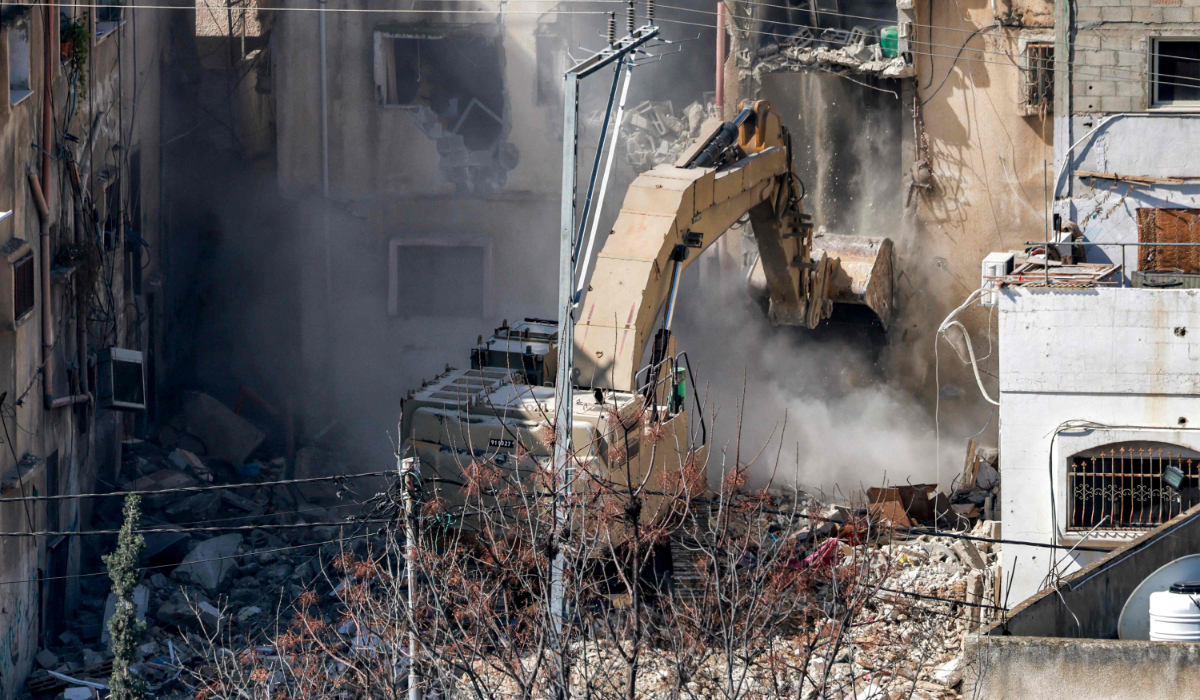AL-ARISH, Egypt: On a floating hospital near Gaza, doctors aren’t just treating physical wounds — they’re providing emotional support too for children and adults haunted by months of terrifying war.
Child amputees and elderly people in wheelchairs are among the patients on the converted ship off Arish, northern Egypt, funded and operated by the United Arab Emirates.
About 2,400 people have been treated at the temporary facility, whose rows of tents below deck hold about 100 patients at a time, says deputy medical director Abdullah Al-Zahmi.
If that only scratches the surface of the needs of Gaza, it reflects the difficulty of providing aid for the sealed and bombarded territory.
More than 38,000 Palestinians, mostly civilians, have been killed in Gaza since the Israel-Hamas war broke out nearly nine months ago, according to the health ministry in the Hamas-run territory.
The war was sparked by Hamas’s October 7 attack on southern Israel that resulted in the deaths of 1,195 people, also mostly civilians, according to an AFP tally based on official Israeli figures.
Nine-year-old Yazan is one of those traumatized by the war, after being brought to the hospital about 40 kilometers (25 miles) from Gaza without his parents and having a leg amputated because of his wounds.
Zahmi jokes with the boy, asks how his parents are doing in Gaza and assures him he will soon have a prosthetic leg fitted.
“The traditional relationship between the patient and the doctor” has dissolved, the doctor tells AFP.
“Every day we see each other, we speak comfortably, and we care about their needs, problems, and psychological pain.”
Yazan’s parents were not allowed to accompany him through the Rafah crossing into Egypt, Zahmi says, without giving further details. The route was closed by Israeli forces in early May.
The boy’s condition “was initially a concern for us, as dealing with him was difficult because he was emotional and in need of his mother and father.”
“But as days passed, we began to include Yazan as one of our family... and now he has become an icon for us because of his clinging to life, his constant smile, and everyone’s love for him,” Zahmi says.
The child is undergoing psychological and social rehabilitation and communicates daily with his family, Zahmi adds.
Smiling as he sits inside one of the tents, Yazan shows the doctor a picture of him with his father before the outbreak of war last October.
After his artificial leg is fitted, Yazan says he wants to “walk and play football,” adding that his “favorite player is (Cristiano) Ronaldo.”
“I would like to return to Gaza and live with my father and mother,” he says.
Zahmi says more than 840 operations have been carried out at the hospital, which has a surgical department, an intensive care and anaesthesia unit, X-ray facilities, a pharmacy and laboratory.
Its 60 staff span specialities including orthopaedics, internal care, neurosurgery and dentistry.
The hospital also provides communal spaces and communications with relatives in Gaza or elsewhere, Zahmi says.
“We provide them with high-speed Internet, outdoor areas for playing and resting, and a place for prayer,” he says.
In the main loading area of the 200-meter ship, ambulances are preparing to transfer patients to a plane to the UAE, where they will receive further treatment.
According to Zahmi, they are among those chosen as part of a UAE initiative to receive 1,000 wounded children and 1,000 cancer-sufferers from the Gaza Strip.
Other patients discharged from the hospital are taken to housing designated for them by Egyptian authorities.
For any patients who need further treatment but who are not being flown to the UAE, the Emirates Red Crescent will cover their costs at an Egyptian hospital.
Fadia Al-Madhun, 44, is on the floating hospital with her husband, who was injured in a bombing that targeted their Gaza home.
“We left the house. It was bombed. We did not take clothes or anything else,” says Madhun, wearing a floral hijab.
“They gave us everything (including) psychological support for our children,” she adds.
Zahmi says the hospital staff have seen “many families who lost their children and people who lost their fathers and mothers, and therefore we understand the tragedies.”
“We listen a lot and try to accept, but in the end, no matter how much we console them, the wound runs deep and remains in the memory,” he adds.
Psychological wounds hard to heal for Gaza war victims
https://arab.news/g4htw
Psychological wounds hard to heal for Gaza war victims

- Child amputees and elderly people in wheelchairs are among the patients on the converted ship off Al-Arish funded and operated by the UAE
- If that only scratches the surface of the needs of Gaza, it reflects the difficulty of providing aid for the sealed and bombarded territory






























